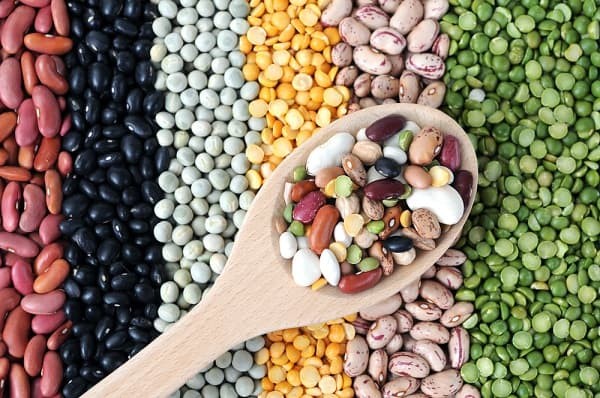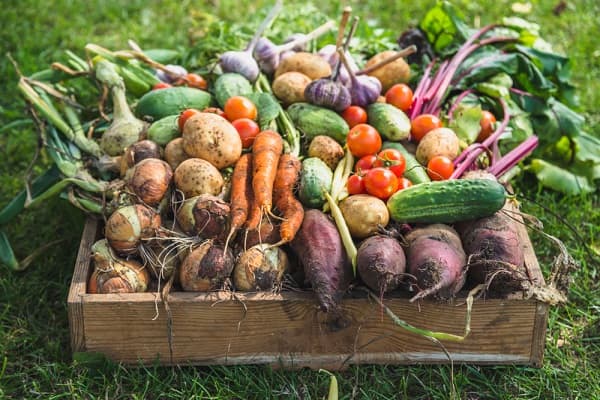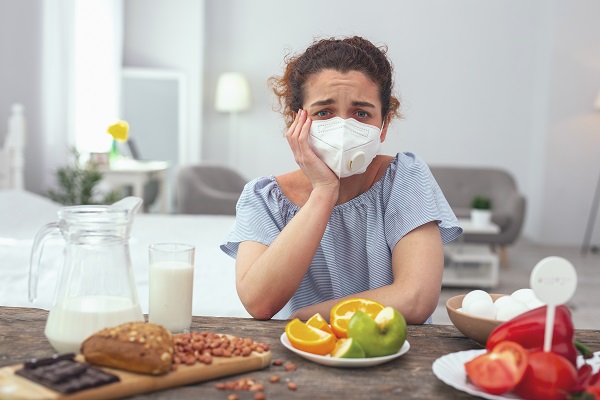
Heard about lectins, lectin-free diets, and want to know what all the fuss is about?
Lectins are a naturally occurring protein found in foods that you are likely to have in your fridge or pantry. These include members of the bean family (legumes), many ancient grains and some vegetables.
Some people seem to have trouble digesting lectins, and this can cause problems in your GI tract - which can lead to bloating and inflammation in this area. This has led to lectin-free diets which eliminate high lectin foods like grains, quinoa, beans and vegetables like tomatoes and peppers.
Should you worry about lectins, and are you lectin intolerant? Let's find out.
What Exactly are Lectins?
Lectins are carbohydrate-binding proteins that are found in most plants, particularly seeds and tubers such as cereal crops, potatoes and beans (legumes). This type of protein may be inflammatory if they are not cooked properly or if they are eaten in high quantities.
What Foods Contain Lectins?
Lectins are usually found in plant foods, though they can also come from animal products, and the amount of lectins contained in the food depends on the type of plant or species and how it was processed. The main foods that may contain toxic lectins include:
 Grains such as wheat and wheat germ but also quinoa, white and brown rice, oats, buckwheat, rye, barley, millet and corn
Grains such as wheat and wheat germ but also quinoa, white and brown rice, oats, buckwheat, rye, barley, millet and corn- Legumes
- Red kidney beans
- Peanuts
- Dairy foods
- The nightshade family (e.g. potato, tomato, eggplant, cucumber and capsicum)
It is important to note that soaking legumes overnight and rinsing them well does seem to remove or inactivate high amounts of lectins present. Heating may remove lectins in some foods, but not all.
What Damage Can Lectins Cause?
Lectins are considered anti-nutrients, no different to oxalates, phytates and other natural chemicals present in plants, which do not break down easily. They are resistant to both stomach acid and digestive enzymes. Lectins may bind to the wall of the digestive tract and could damage the gut lining, causing intestinal permeability. Because of the damage that lectins could do to the gut, other proteins may be able to cross into the body undigested and cause allergic reactions within the body.
Lectins are linked to some autoimmune conditions such as coeliac disease, rheumatoid arthritis, heart disease, inflammatory bowel disease (IBS) and obesity. However, it's important to note that the majority of studies have been done with isolated lectins, and not with actual foods we consume, so there is limited research on this subject.
Raw beans have been found to contain higher levels of lectins, as opposed to canned beans that have been cooked and processed, hence their low lectin content. However, this is not to suggest that canned vegetables have more health benefits than freshly cooked ones. If you're on a plant-based diet, you can eat foods with lectins so long as you cook them at a high temperature and long enough to reduce, if not eliminate, lectin content.

How is Lectin Content Reduced?
Lectins protect plants from predators, but there is no scientific evidence to prove that they can have negative effects on the human body when consumed in cooked foods. In fact, research shows that different cooking methods can eliminate the protein altogether, including roasting, microwaving, baking and toasting. However, lectins in beans take longer to remove, especially if they are cooked at low heat.
Research shows that soaking raw kidney beans in water for at least 8 hours before cooking in water at 212°F for at least 10 minutes will disable the lectins.
What are the Good Effects of Lectins?
The news is not all bad when it comes to lectins.
There have been studies that show that lectins are able to make abnormal and malignant cells stick together, as well as stop them from functioning. This has important overtones when it comes to types of cancer. Soy protein in low concentration has this effect on cancer cells, while leaving normal cells alone in blood types A and AB. Peanut lectins are shown to fight breast cancer cells in blood types A and AB.
Peanut lectins inhibit cancer cell growth and destroy cancer cells in blood types A and AB. Soy bean lectins makes cancer cells stick together and also destroys them in blood types A and AB. Fava bean lectins promote cell differentiation in all blood types. Amaranth lectins inhibit cancer growth in blood types A and AB. Domestic mushrooms promote cell differentiation in all blood types and jackfruit lectins stick together T antigens in all blood types.
In order to reap the benefits of lectins without damaging your gastrointestinal tract, consider foods with low lectin content in your diet such as the following:
Should I Follow a Lectin-free Diet?

Like any diet you are thinking of following, you need to know the pros, cons and potentially harmful side effects before you start it. Elimination diets can expose you to nutritional deficiencies. The current scientific evidence is that lectin-rich foods such as legumes, vegetables and grains are important for a balanced diet.
If you are unsure about any diet or food intolerance, you may have best to consult a qualified dietitian or nutritionist for an informed opinion.
|
Do you have a natural health & wellness business? |









